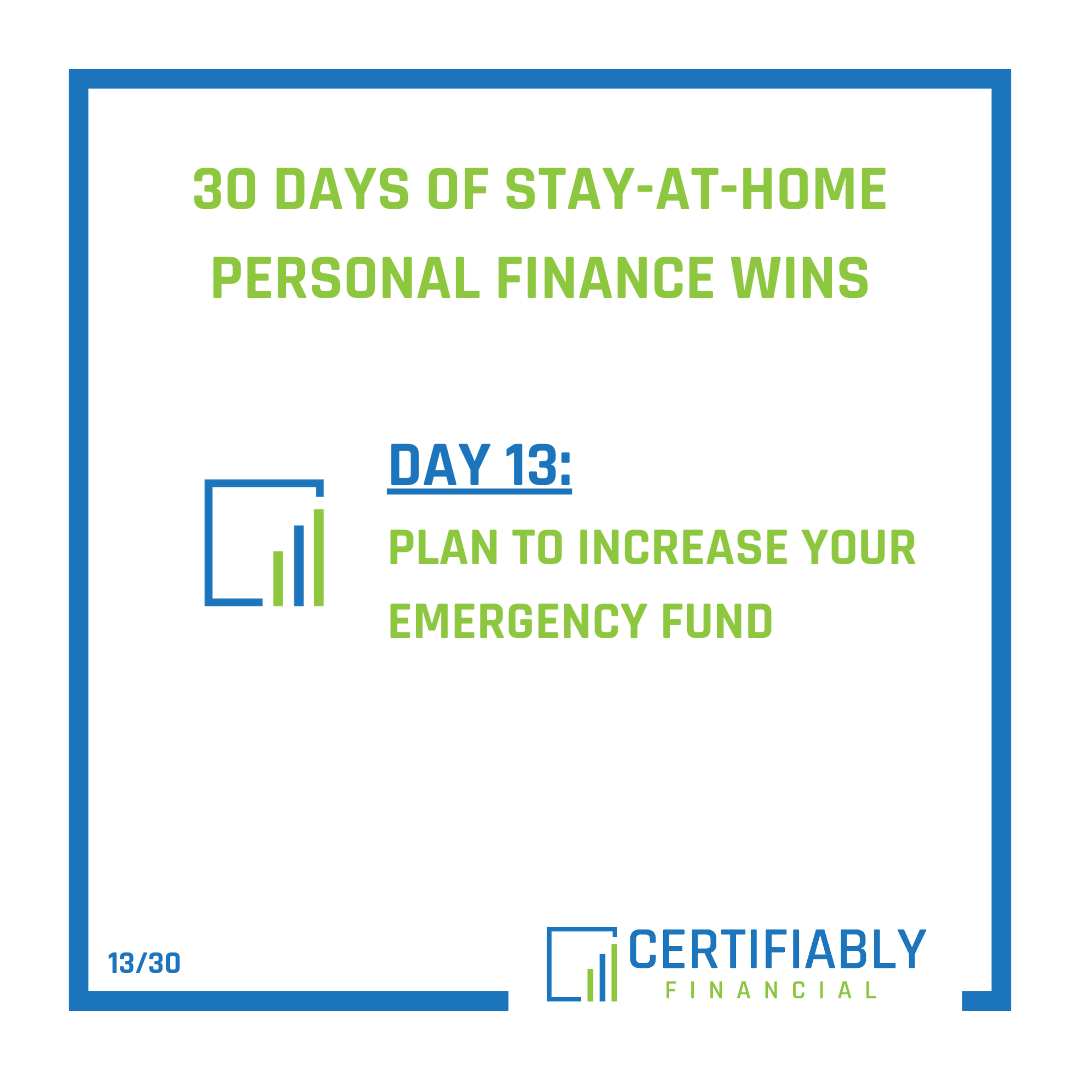What if you were able to come out of this time of social distancing and economic crisis with a stronger and healthier financial life? What if you looked at this as an opportunity to take a little bit of your extra time each day to work on your finances?
Since it takes me about 35 minutes to drive to work in the morning and 45 minutes on the way back home, I have an extra 1 hour and 20 minutes of my day that I don’t have to drive while I’m working from home that I can use to accomplish something. This doesn’t even take into consideration all of the networking and social events that would usually take up some of my time throughout the week.
Obviously, your situation is different than mine (and probably a whole lot different if you have kids at home who would otherwise be in daycare), but I’m guessing that we all have at least a little extra time right now that we can dedicate to our personal finances.
It looks like we’re going to continue to practice our social distancing skills at least through April, and now is a great time to work on creating a better financial situation, so I’m giving you 30 days of stay-at-home personal finance wins throughout April.
Unfortunately, I understand that there are many who have (and who will) lose their jobs during this time of uncertainty and objectively will not come out on the other side of this with a stronger financial situation. Hopefully, many of these personal finance wins can help to lessen the blow and make things easier on them. On the other hand, I think that many of these wins are still relevant to those who are fortunate enough to be in a position to not have to worry about their job and their finances to help them build a healthier financial life.
Day 13: Plan To Increase Your Emergency Fund
No matter who you are, I’m guessing your emergency fund could use a little work. Why do I say that? Because most people don’t have an adequate emergency fund of 3-6 months’ worth of expenses in place. I often find that even people who have great incomes and the ability to easily save don’t keep enough cash on hand.
It should not go without saying that it’s much harder for those with low incomes to be able to save for an emergency fund and keep 3-6 months’ worth of cash on hand. For some, it may be nearly impossible. For those of us who are in better situations the only excuse is overconsumption and not seriously considering the consequences of having to find an alternate source of emergency funds such as using a credit card or borrowing from family.
The cycle is vicious. If you don’t have enough cash on hand to cover an emergency like losing your job, unexpected medical bills, expensive home repairs, car repairs, or all of the above at the same time, then you could end up accruing a credit card balance. The credit card will likely have a ridiculously high interest rate and you won’t be able to pay it off for some time which means that interest will begin accruing, digging yourself deeper into the hole. Eventually, you find yourself with a balance remaining on your credit card and another emergency to pay for, deepening the hole even further.
This happens all too often.
We don’t need to look any further for an example of why emergency funds are so important than when many people in Indianapolis who were employed by Celadon unexpectedly lost their jobs in December of 2019. Unfortunately, we’re seeing so many more people face situations like this right now as they are being laid off, furloughed, or having their hours/income reduced to cope with the economic effects of social distancing.
These examples have only strengthened my opinion that people should have strong emergency funds in place. I’m not trying to scare you; I’m just trying to demonstrate the importance.
If you’re someone who isn’t going to be affected financially by social distancing and you haven’t adequately prepared for the potential risks to your financial life, then now is a great time to make a plan to increase your cash on hand. You’re probably not going to get to where you need to be in the matter of a couple of months, but you can create a long-term goal and break it down into smaller, more achievable goals that you can work towards achieving starting now.
Here are some resources that can help you free up cash flow in your budget and find funds elsewhere to help you build your emergency fund:
- Money milestones: How to rebuild a depleted emergency savings fund
- Navigating the New Reality (Page 5)
- Where Should I Keep My Cash?
30 Days Of Stay-At-Home Personal Finance Wins
- Day 1: Understand The CARES Act
- Day 2: File for Unemployment or Short-Time Compensation
- Day 3: Request Forbearance
- Day 4: File Your Tax Return (Maybe)
- Day 5: Commit to Yourself
- Day 6: Practice Financial Distancing
- Day 7: Don’t Panic
- Day 8: Create An Online Shopping Strategy
- Day 9: Find & Store Your Login Information
- Day 10: Review Your Spending
- Day 11: Free Up Cash Flow
- Day 12: Automate Bill Payments

